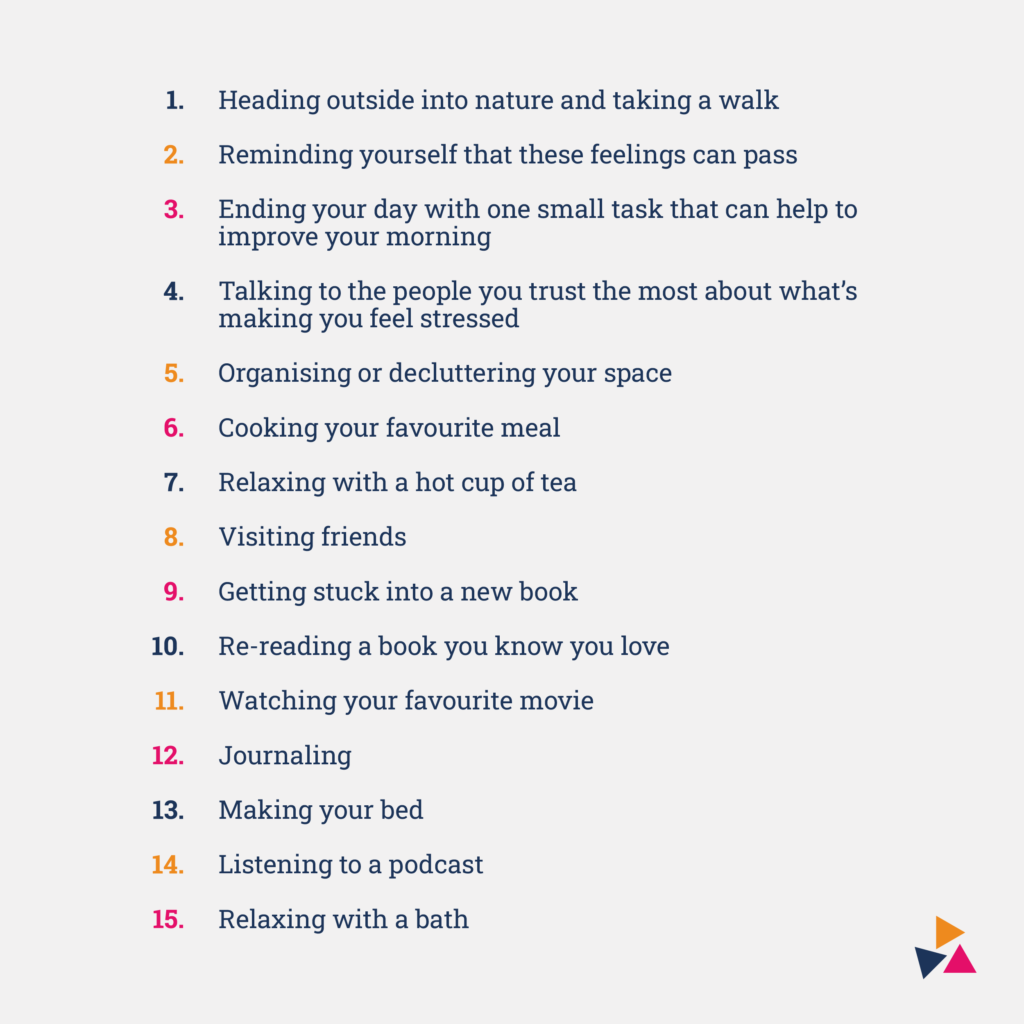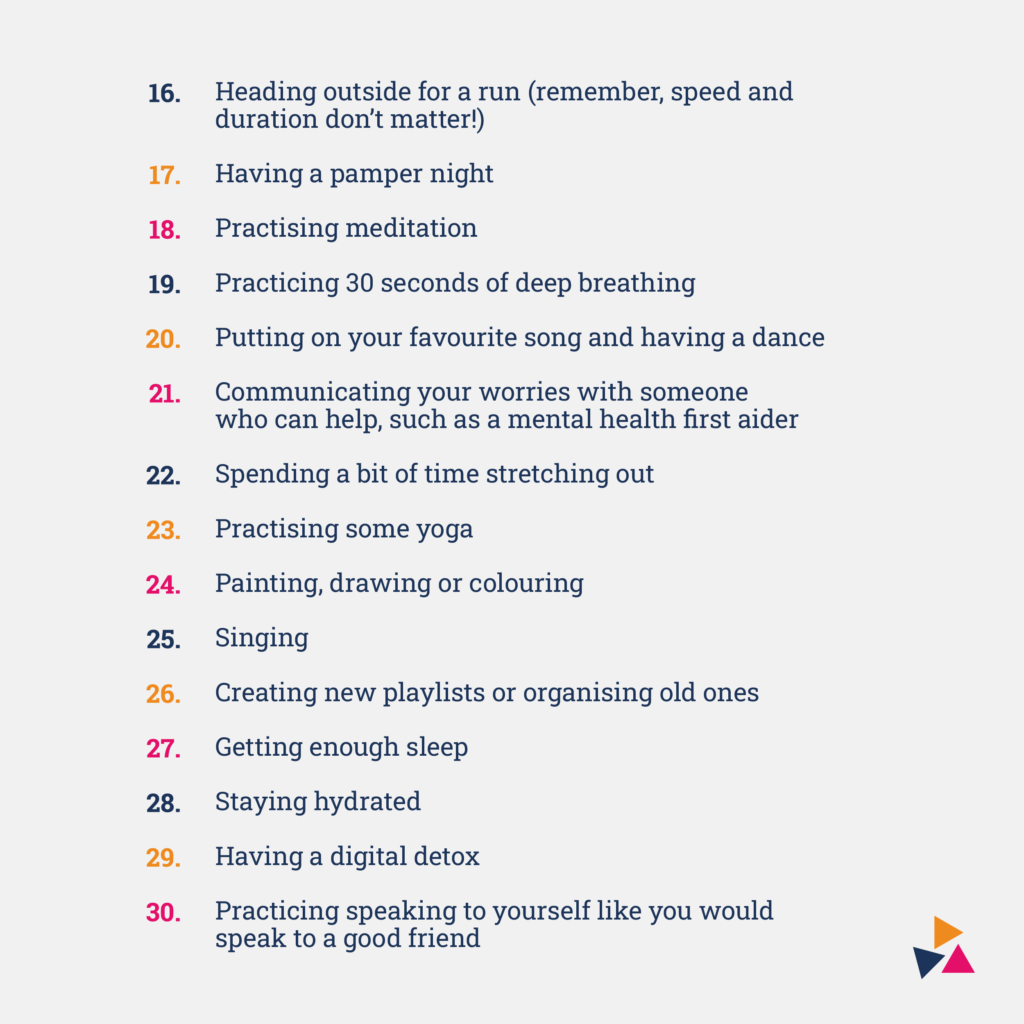Think back to exactly a year ago today. Can you remember what you were worried, stressed, or anxious about? Unless one of life’s big, challenging moments happened on this day, the likelihood is you probably can’t. This could be because, for many of us, the things we worry about don’t often happen. So, if everyday stresses and anxieties tend to fade over time, why do they happen in the first place? Well, because life is challenging. At any given time, you could be juggling career concerns, financial worries, social pressures, identity issues and parenting complications. One or more of these worries could be running in the back of your mind, all whilst trying to get enough sleep, eat well, exercise and make time for the little things you enjoy. It’s tough. Truly.
Although a common feeling, stress can be one of the biggest factors to impact on our mental health and is present in almost all the anxiety disorders, with “over 70% of people in various studies across multiple continents, state that they have regularly experienced mental distress and overwhelm that may lead to poor coping.”
Although stress is common, it can naturally fade over time or when the stressful situation ends. However, it can also grow and build, starting off as something seemingly small and then in some cases snowballing into a more severe mental health problem, such as anxiety or depression.
Despite its negative impact on people, one of the benefits of stress being so common and widespread is that there are plenty of resources and help available. This #StressAwarenessMonth, we’ll be taking you through some of the ways you can overcome stress and help to prevent it building up in the first place.
Stress Awareness Month #ChooseHope
People are different and everyone’s mental health looks different too. Because of this, feelings of stress can be subjective. What one person might dread and find stressful, another might look forward to and enjoy. Although a common feeling and something people will experience on a monthly if not weekly basis, stress can be one of the biggest impactors on our mental health because of how probable it is and how often we can feel it.
The signs of stress can be feeling:
- Anxious
- Angry
- Aggressive
- Sad
- Frustrated
- Depressed
- Afraid
- Worried
- An impending sense of doom
Stress can sometimes trigger what’s known as the ‘fight or flight’ response which can occur when we feel under pressure, threatened or nervous. It’s our body’s way of saying “I’m not sure what’s going to happen here, so, I’m going to get ready to protect you if you need to.” Essentially, it’s our body reacting to pressure and the uncertainty of a situation. Which can be why the higher the stakes of a situation, the more stressed we feel.
Stress levels can range from low to high and the build-up of stress can end up feeling so heavy. It can consume your thoughts and control your day. But there are always ways to help take back control of your thoughts and to manage your stress levels.
This #StressAwarenessMonth’s theme of #ChooseHope is firstly, a reminder that in most situations, there is always something that can be done to help reduce feelings of stress and worry. Whether it’s talking to a friend or family member you trust, handing over some responsibilities at work or prioritising your to-do list, there are always options and people to turn to for help. Try to remember that your mental health is more important than other peoples’ expectations of you. Secondly, #ChooseHope is also a reminder of the importance of your mindset. Many situations can be out of our control, but you are always in control of your outlook and how you react.
To help people get into a positive headspace, The Stress Management Society have created a ’30 Day Challenge,’ encouraging you to pick one action from their list for your physical, mental and emotional wellbeing to carry out every day to help improve wellbeing and reduce stress levels. Click here to see the challenge.
30 Actions to Better Anxiety
Here are some little actions you can introduce into your daily routines to help manage stress levels, reduce everyday anxieties and in general, improve overall wellbeing.


For the more difficult days when your stress levels are starting to rise and the above actions don’t feel achievable, start smaller. Such as:
- Making your bed – this can actually help to create a sense of calm
- Brushing your teeth
- Setting a timer and cleaning your space for 5 minutes
Hopefully, incorporating some of these actions into your routines can help you to better manage everyday stress or anxieties, through Stress Awareness Month and beyond. To find out more amdanom nia’r mathau o hyfforddiant rydyn ni’n eu darparu, neu i drefnu cwrs drwy un o’n hyfforddwyr trwyddedigewch i’n gwefan a buddsoddwch yn eich llesiant chi ac yn iechyd meddwl y rheini o’ch cwmpas

